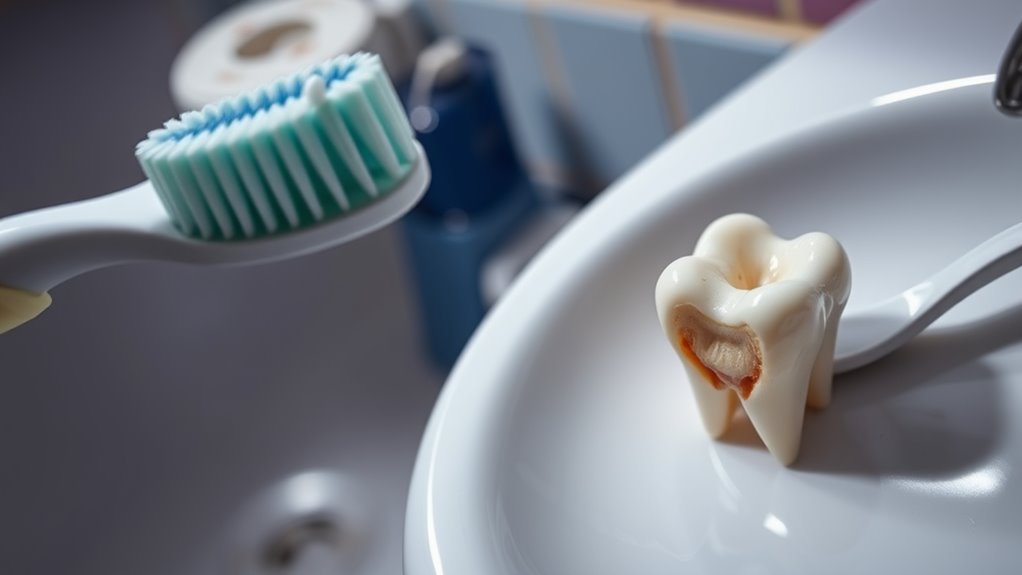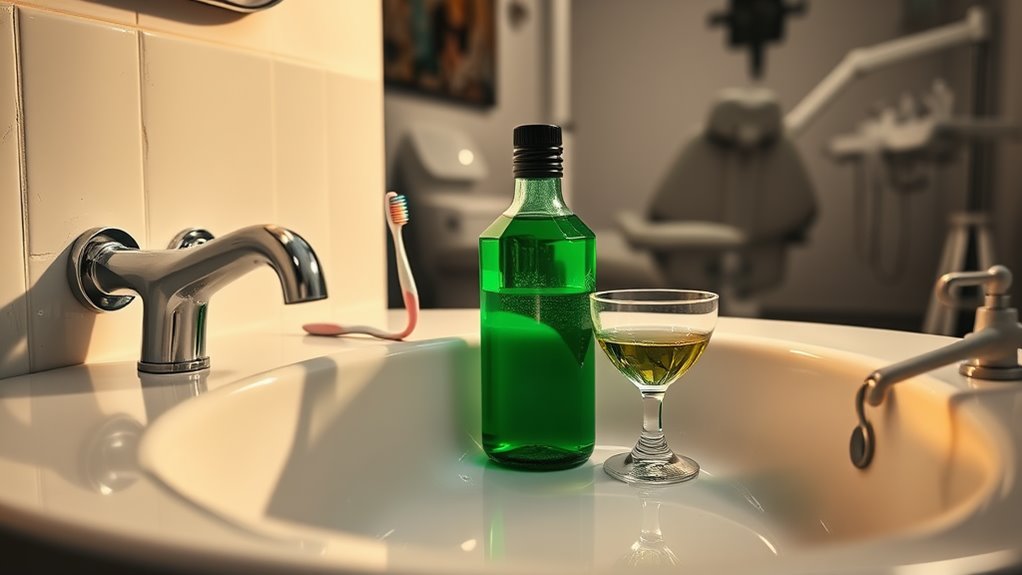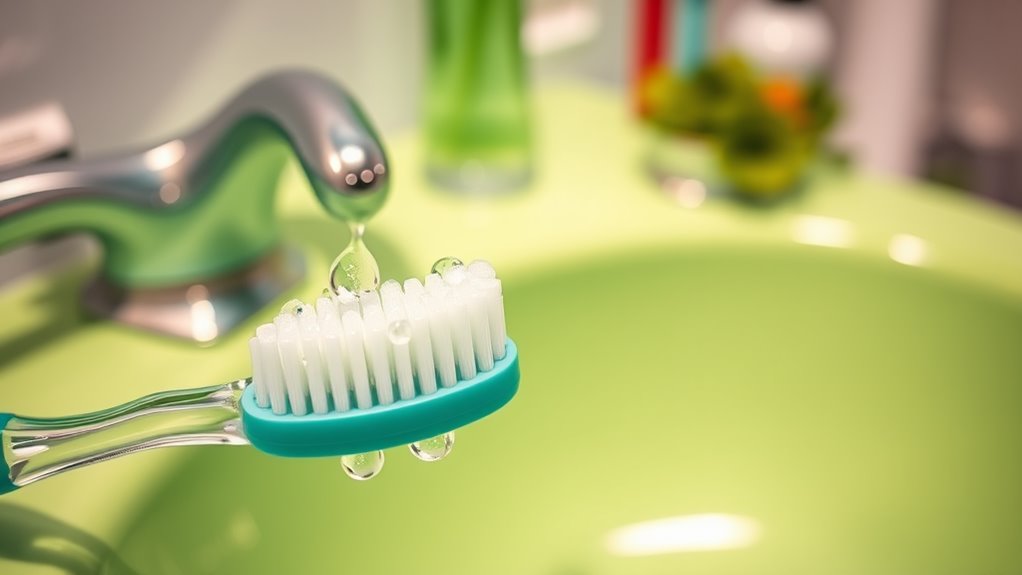This TikTok Trend Is Destroying People’s Teeth – Don’t Try It!
You’ve probably seen those TikTok videos showcasing at-home teeth whitening hacks using baking soda and lemon juice. While they might promise quick results, the truth is these DIY methods can seriously damage your enamel and lead to other dental issues. Dentists are raising alarms about these trends and their potential consequences. So, what exactly is happening to your teeth when you follow these viral fads? Let’s explore the risks involved.
Understanding the TikTok Trend
In recent months, you’ve likely seen videos showcasing a trend that’s raising eyebrows—and alarms—among dental professionals. This TikTok craze, which promotes certain at-home teeth whitening methods, has quickly gained popularity.
While it seems harmless and even fun, it’s essential to recognize the underlying dangers. Many influencers encourage using household items like baking soda or lemon juice, claiming they’ll give you a brighter smile in no time. However, these are dangerous trends that can erode your enamel and lead to long-term dental issues. Frequent use of baking soda can wear down enamel with high concentration use, increasing the risk of sensitivity and cavities.
You might feel tempted to join in and try these methods, but remember that social media isn’t always a reliable source for health advice. Your smile is a vital part of your identity, and it deserves proper care.
Instead of jumping on the bandwagon, consider consulting your dentist for safe and effective whitening options that won’t jeopardize your dental health.
The Dangers of DIY Dental Practices
While the allure of DIY dental practices may seem tempting, the risks involved far outweigh any potential benefits. You might think you’re saving time and money, but these shortcuts can lead to serious consequences for your teeth and overall health.
Here are a few dangers you should consider:
-
Ineffective Results: Home remedies often don’t deliver the promised results, leaving you frustrated and disappointed.
-
Damage to Enamel: Many DIY methods can erode your tooth enamel, leading to sensitivity and decay.
-
Infection Risks: Improper techniques can introduce bacteria, increasing your chances of painful infections.
In a world where belonging is key, it’s easy to get swept up in trends. However, relying on home remedies can often delay necessary dental care, exacerbating existing issues. But remember, your smile is worth more than a fleeting social media moment. Prioritize your dental health by seeking professional advice instead of jumping on the next DIY bandwagon.
Expert Opinions From Dentists
Many dentists express concern over the rise of TikTok trends that promote questionable dental practices. They worry that these viral challenges can lead to serious damage to your teeth.
Many experts emphasize that what seems fun or trendy online often lacks any scientific backing. Instead of relying on social media for dental advice, you should consult your dentist for safe and effective care.
Dr. Jane Smith, a renowned dentist, points out that DIY whitening methods can erode enamel, making teeth more susceptible to decay.
Dr. Alex Johnson adds that using unverified products can lead to gum irritation or even infections.
As you navigate the world of social media, remember that your dental health is too important to risk for a fleeting trend. DIY methods may lead to sensitive teeth and inconsistent results, further complicating your dental care journey.
It’s essential to prioritize professional advice and make choices that truly benefit your smile. Stay informed, and don’t let trends dictate your dental decisions!
Real User Testimonials and Experiences
Countless users have shared their experiences with TikTok dental trends, revealing a mix of excitement and regret. Many jumped on the bandwagon, eager to achieve that perfect smile, only to face unexpected consequences.
You might find yourself relating to their stories, as they highlight a few common themes:
-
Instant Gratification: Users often felt a rush when seeing quick results but regretted the long-term impact.
-
Peer Pressure: The desire to fit in led some to try risky methods, only to wish they hadn’t.
-
Misleading Information: Many realized too late that viral trends didn’t come with proper guidance.
These testimonials serve as a cautionary tale. While it’s tempting to follow the latest trends, remember that your dental health deserves more thoughtful care. Additionally, many users experienced gum recession due to improper brushing techniques linked to these trends, which only exacerbated their dental issues.
You’re not alone in this journey; many wish they’d prioritized their well-being over fleeting TikTok fame.
Long-Term Effects on Dental Health
As you dive into TikTok trends, it’s crucial to understand the long-term effects they can have on your dental health. Many viral challenges promise quick results, but they often overlook the potential damage to your teeth.
Using harsh whitening agents or abrasive substances can wear down enamel, leading to increased sensitivity and a higher risk of cavities. You might notice immediate changes, but over time, the consequences can be severe. Poor oral hygiene can exacerbate these issues, leading to further complications.
Discoloration, cracks, and even gum issues can arise, affecting not just your smile but also your confidence. Friends may encourage you to join in, but remember that trends come and go.
Prioritizing your dental health means making informed choices. Your smile is unique, and treating it with care will ensure it stays bright for years to come.
Stay connected with those who value safe practices, and you’ll find support in making choices that truly benefit your health.
Safe Alternatives for Teeth Whitening
While it might be tempting to jump on the latest TikTok trend for a brighter smile, there are safe alternatives for teeth whitening that won’t jeopardize your dental health.
You deserve to smile confidently without risking damage to your teeth. Here are some options that can help you achieve that radiant grin:
-
Professional Whitening Treatments: Visit your dentist for custom trays or in-office treatments that are effective and safe.
-
Whitening Toothpaste: Use a toothpaste containing mild abrasives or baking soda to gently remove stains without harming enamel.
-
Natural Remedies: Try using baking soda with water or hydrogen peroxide in moderation, but be cautious and consult your dentist first.




